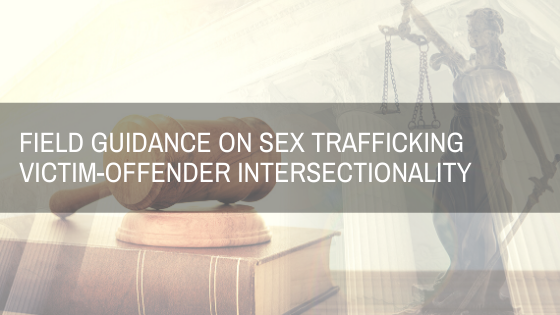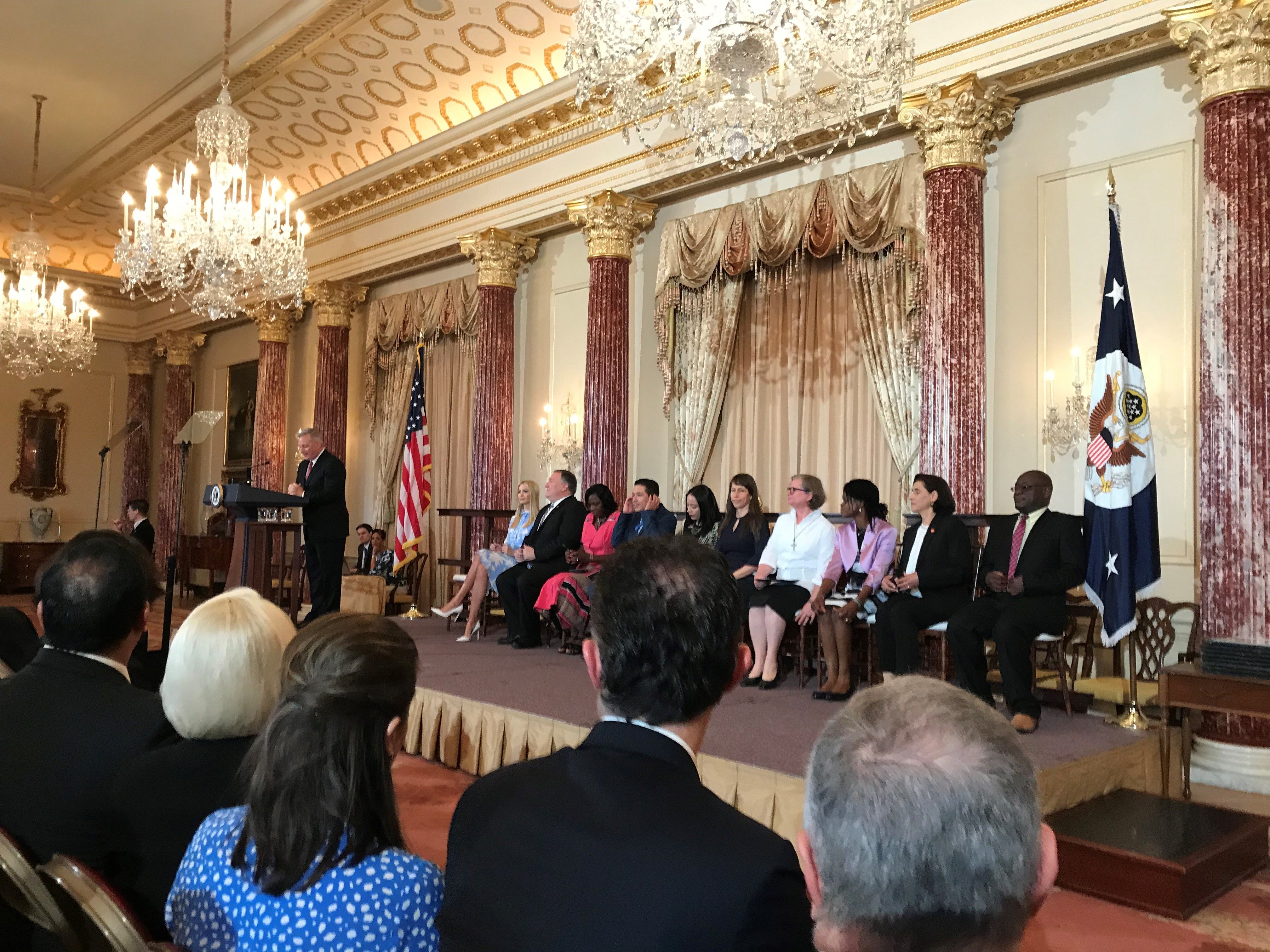
Shared Hope International, Shared Hope’s JuST Response Council and the Institute to Address Commercial Sexual Exploitation at Villanova Law are pleased to announce the upcoming release on January 23, 2020 of a field guidance report on sex trafficking victim-offender intersectionality—the phenomenon of sex trafficking survivors entering the criminal justice process for allegedly engaging in sex trafficking conduct.
This field guidance, which follows three years of collaborative research, will provide tools for criminal justice stakeholders that assist in identifying the intersection of trafficking victimization and offending conduct, as well as guidance on responding to these cases in a trauma-responsive and trafficking-informed manner. By examining some of the common factors in cases involving victim-offender intersectionality through a trafficking-informed lens, alongside specific case studies drawn from federal prosecutions, this field guidance seeks to identify strategies for moving toward more just and fair responses to sex trafficking victim-offenders at all stages of the criminal justice process.
While the field guidance specifically focuses on survivors of sex trafficking charged with sex trafficking offenses, many of the considerations that arise in that context are informative for criminal justice stakeholders responding to trafficking survivors who have been charged with other crimes as a result of their trafficking victimization. We hope this guidance will also lead to greater discourse on this difficult issue and ongoing efforts to work toward victim-centered, trauma-informed solutions.
The release of this field guidance report on January 23, 2020 also marks the Grand Opening of Shared Hope International’s new Institute for Justice & Advocacy. The work of the JuST Response Council and this new research reflect the Institute’s commitment to finding solutions to complex problems to help bring an end to juvenile sex trafficking and provide support and protection to those impacted by sex trafficking.
If you are interested in attending the event at the Institute, please register here. Space is limited. If you are not able to attend in-person, please join us remotely via Facebook Live at Shared Hope’s Facebook page.
[clear-line]
Shared Hope International’s JuST Response Council represents some of the most innovative and informed experts in the country. These members help ensure JuST Response products are informed by diverse perspectives and experiences. Council members share the goals of preventing juveniles from becoming sex trafficking victims and ensuring that youth who have been trafficked have access to the tools and support necessary to heal from the trauma they have endured and the skills to create and sustain a life away from trafficking. Members include policy advocates, government officials, medical professionals, law enforcement, judges, academics, and service providers, many of whom are themselves survivors of juvenile sex trafficking, from diverse geographic areas.







